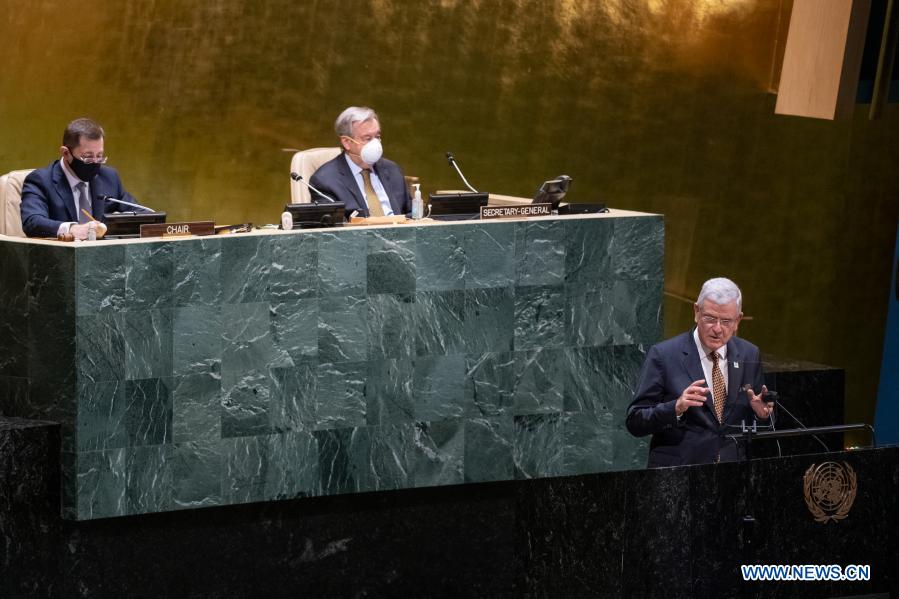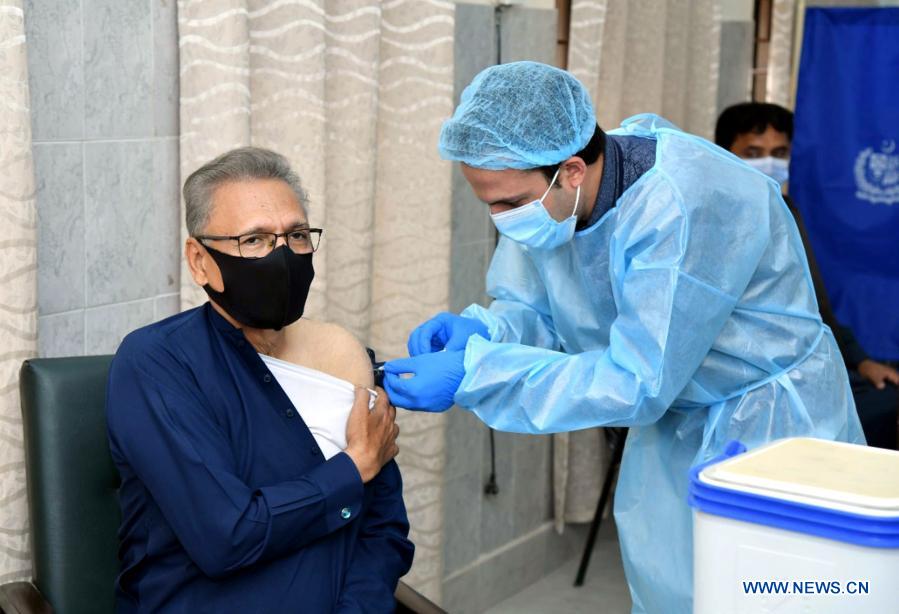
UN General Assembly President Volkan Bozkir (at podium), addresses the opening of the 65th session of the Commission on the Status of Women (CSW) at the UN headquarters in New York on March 15, 2021. (Eskinder Debebe/UN Photo/Handout via Xinhua)
UNITED NATIONS, March 15 -- UN undersecretary-general and executive director of UN Women, Phumzile Mlambo-Ngcuka, on Monday called for bold and strong moves toward gender equality at this year's session of the Commission on the Status of Women (CSW).
"Let this be a defining CSW session of our time and in a time of crisis. It is my heartfelt hope that in this year, also my last year at UN Women, we can witness bold and strong moves that will propel us in a much stronger way to gender equity and will end the discrimination against women and girls and empower all of us," she told the opening of the 65th session of the CSW.
Under-representation of women is a factor in the slow progress in all aspects of gender equality, she said. "It is inconceivable that we can address this situation that is faced in the main by women and solve problems that women and girls face without the women themselves taking part in decision-making."
"We currently confront the two biggest challenges of our generation: the COVID-19 pandemic and its consequences, and the unfolding climate change crisis. In both, women are disproportionately affected. In neither are women appropriately represented as negotiators and policy-makers," she noted.
In a recent survey of COVID-19 task forces from 87 countries, it was found that less than 5 percent of those task forces had gender parity in the composition of their membership. This gives men the self-imposed, impossible task of making the right decisions about women without the benefit of women's insights, she said.
"Neither the pandemic nor the financial crisis deters us from making progress in the representation of women. In fact, quite the opposite, the pandemic shows us how much we need to change so that we can truly build back better. Representation of women in decision-making is the only way to build back better -- in a gender-responsive manner, in an equitable manner, and in a greener manner."
Change is possible and political will is critical in that respect, said Mlambo-Ngcuka.
In Estonia, both the head of state and head of government are women. In Lithuania, the share of women in government has risen from 8 percent to 43 percent. In Rwanda, more than half of ministers are women. In the United States, women in charge of ministerial portfolios rose from 17 percent in 2020 to 46 percent in 2021, she noted.
She called for special measures to boost gender parity in leadership positions. "Most important is to institute special measures, like well-designed and effectively implemented gender quotas and targets."
Only 13 countries currently have gender-equal cabinets, a number way too low, she said.
The premise of this year's priority theme -- women's full and effective participation and decision-making in public life -- is that it is not acceptable that institutions that are male-dominated should decide on matters that affect women's lives and concern the lives of all humanity, she said.













